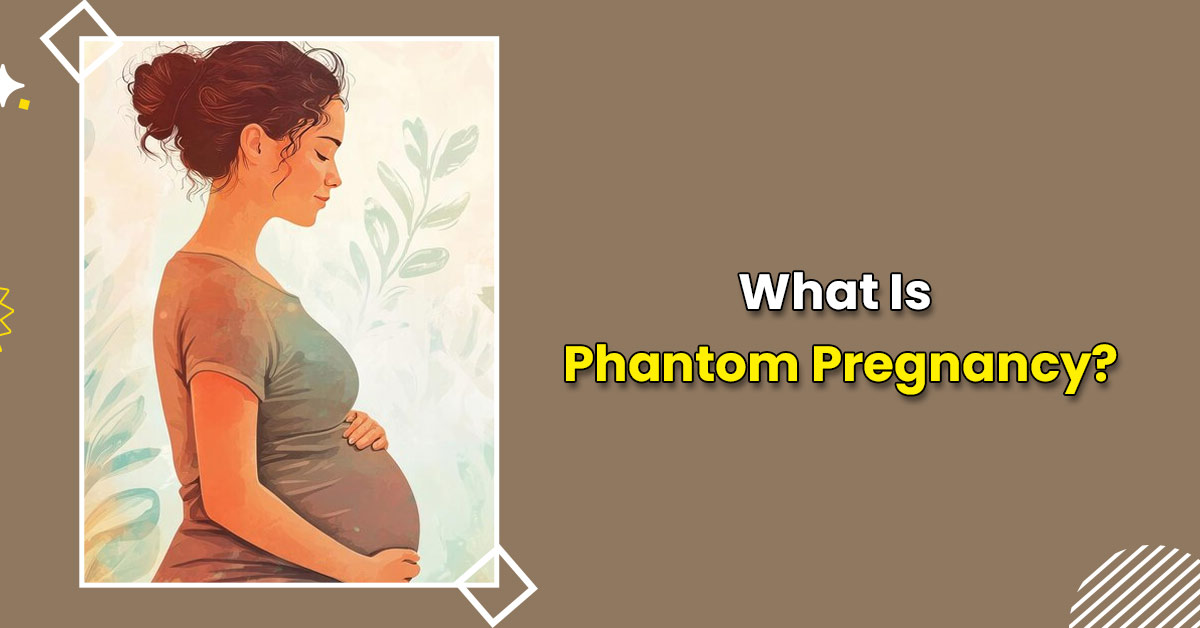
For many women, the hope of becoming pregnant can be so strong that their bodies begin to show signs of pregnancy, even when they aren’t expecting. This is known as phantom pregnancy, a condition where symptoms like nausea, missed periods, and weight gain occur without an actual pregnancy. Women who have faced years of infertility, repeated miscarriages, or failed IVF treatments are more likely to experience this. We spoke to our expert Dr Pruthviraj MO, Consultant- Obstetrics and Gynaecology, Manipal Hospitals, Varthur, Bengaluru, who explained the symptoms, causes, and treatments for phantom pregnancy, shedding light on a condition that can be both confusing and emotionally challenging.
Table of Content:-
What Is Phantom Pregnancy?

Phantom pregnancy, also known as false pregnancy, occurs when a woman experiences symptoms of pregnancy without actually being pregnant. It is often observed in women who:
- Have been trying to conceive for many years and strongly desire to become pregnant
- Have experienced recurrent pregnancy loss
- Have undergone extensive infertility treatments
- Have had failed IVF attempts without resulting in a live birth
- Have endured sexual abuse
- Suffer from emotional disturbances
- Face societal or family pressure to conceive
- Are affected by psychological or hormonal factors, such as early menopause or conditions like uterine fibroids, which can lead to symptoms, such as weight gain, fatigue, and an enlarged uterus, mimicking pregnancy symptoms.
A strong desire for pregnancy can influence hormonal balance, causing physical symptoms that resemble pregnancy. Women experiencing phantom pregnancy often visit obstetricians or gynaecologists with typical pregnancy symptoms, despite not being pregnant.
According to a study published in the British Medical Journal, most cases are reported to occur between the ages of 20-39, although one study showed an age range from 5-79. Recently, cases have also been observed in teenagers. The most common symptom is absent or infrequent menstrual periods, typically lasting around nine months.
Also Read: Urinary Stasis During Pregnancy: Expert Explains Its Symptoms, Diagnosis, And Treatment Measures
Symptoms Of Phantom Pregnancy

- Nausea with or without vomiting
- Bloating sensation
- Breast tenderness
- Missed periods or scanty periods
- Increase in the size of the abdomen
- Intestinal movements are perceived as baby movements
- Weight gain
- Food cravings
- Cramps confused to be false labour contractions
How is Phantom Pregnancy Diagnosed?

“When a woman suspects she may be pregnant, as an obstetrician, we would ask her to get a Urine Pregnancy Test (UPT) or serum beta (Human chorionic gonadotropin) hCG blood test to begin with. If the UPT kit shows two dark red lines or the beta hCG level is more than 5.0 IU/L, it would confirm pregnancy,” said Dr Pruthviraj.
Depending on the beta hCG value, when it crosses the discriminatory zone of 1100-1500 IU/L, we would be able to determine the location of the pregnancy, which is usually within the uterine cavity in the majority of cases. “In some cases, it may be considered a somatic symptom disorder when a person has physical symptoms of a condition without any medical explanation. If evidence proves that she is not pregnant, she understands and seeks appropriate treatment,” added Dr Pruthviraj.
Also Read: Pregnancy Glow: Expert Explains If It Is Real Or A Myth?
Treatment For Phantom Pregnancy

The treatment begins by showing the woman ultrasound images to confirm that no pregnancy is present in the uterus. If she has missed her periods, hormonal tests are done to identify the cause, and medications are provided to help regulate her menstrual cycle. Identifying the underlying cause and addressing it with appropriate treatment is essential. Consultation with a psychologist and behavioural therapy may be recommended.
Delusion of Pregnancy: A Different Condition
It's important to note that the 'delusion of pregnancy' is a separate condition and not synonymous with phantom pregnancy. “In cases of delusion, a woman believes she is pregnant despite concrete evidence showing otherwise. Even after multiple negative tests and ultrasound results showing no pregnancy, some women may continue to believe they are expecting,” added Dr Pruthviraj.
Hence, despite urine and blood tests showing negative beta hcg along with an ultrasound pelvis confirming an empty uterus with no sign of a gestational sac (pregnancy) inside or outside the uterine cavity, some women would still believe she is pregnant and would go to multiple gynaecologists to hear that she is pregnant.
Dr Pruthviraj shares that, unfortunately, in some cases, quacks or so-called 'gurus' may convince women that they are experiencing a special pregnancy that cannot be detected by doctors or lab tests. In such cases, the woman may remain trapped in her false belief due to the strong symptoms she experiences. Consulting a psychiatrist is highly recommended in these situations.
[Disclaimer: This article contains information provided by an expert and is for informational purposes only. Hence, we advise you to consult your own professional if you are dealing with any health issues to avoid complications.]
Also watch this video
How we keep this article up to date:
We work with experts and keep a close eye on the latest in health and wellness. Whenever there is a new research or helpful information, we update our articles with accurate and useful advice.
Current Version